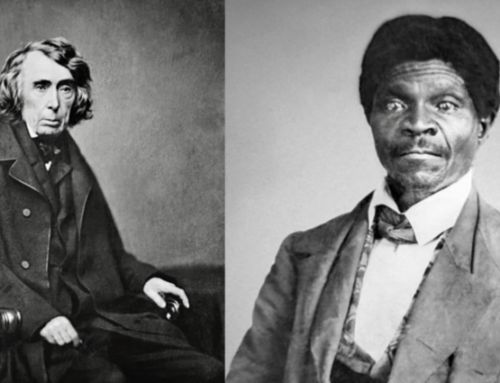“On this day, we come to proclaim an end to the petty grievances and false promises, the recriminations and worn out dogmas, that for far too long have strangled our politics.”—Inaugural Address, President Barack Obama 2009
No matter who wins at the polls today, the great loser of election 2012 will be Barack Obama and the dream of a united America he championed as a candidate. At most, President Obama will eek out a narrow victory on Tuesday. And, in order to accomplish the feat of limping into a second term, he will have had to spend $1 billion, use executive orders to circumvent the law in order to appeal to key demographics groups in the electorate, and relentlessly pound his opponent with negative ads that began nearly six months before the election. (Indeed, a full 85% of the president’s advertisements were negative.) How far we are from the optimistic young political superstar of 2008!
This shrunken Obama has his origins in the very campaign of 2008 when he oversold his potential and undersold the challenges ahead. It is a common rule of politics that goes back at least to the 16th century Florentine Niccolo Machiavelli that one should be ever so careful about raising expectations. Obama’s supporters, for it was not all the candidate’s doing, invested him with a mantel he could never really wear even among the most ideal of circumstances. The Noble Peace Prize committee sealed his fate on this score by giving him the world’s most coveted prize just months after his inauguration.
Though expectations were stratospheric, they don’t excuse the long list of promises unfulfilled and hopes dashed. For the left, Guantanamo Bay remains open and drone strike killings have escalated. For the ACLU it must be particularly galling that it was the Nobel Prize winner and not George W. Bush who decided to kill an American citizen through a targeted drone strike rather than afford the accused his constitutional due process rights. Moderates just hoping for better and affordable government have had their dreams dashed among the rocks of the most partisan divides seen in decades. Some of us conservatives found hope in the rhetoric of his inaugural address and his pledges to reach across the aisle but were gravely disappointed. Obama’s one purple America has turned alternatively more blood red and cold blue.
The soaring rhetoric of his first campaign is gone. The minister of hope and change has been reduced to cheap political props like commercials starring Big Bird and cute wordplay designed to demean his opponent and his vision (“Romnesia”). This week’s admonition to his supporters to exercise the vice of revenge as they cast their vote was just the latest example of a shrinking presidency and a loss of vision. It turns out it is again all about politics, all about keeping power.
It didn’t have to be this way. While all the blame can’t be placed at the President’s feet, he is the President and the tone-setter of the national discourse. There were moments of great choice when he had the chance to bring change. After his strong victory in 2008, the Republican Party was demoralized and fearful of his electoral power. He could have reached out to them then and built bridges while they were weak. Instead, he embarked on a one-sided governing strategy that let Harry Reid and Nancy Pelosi drive their legislative agenda in Congress and made aggressive use of unilateral executive power from the White House. Meetings with the opposition were almost non-existent and when they finally occurred, we all remember Obama’s reaction to being challenged in his dressing down the war hero John McCain for having been beaten in the election.
When the mood of the nation began to shift during the battle for the Affordable Care Act, the President and his party reacted by using parliamentary tricks to jam it through before Republicans could claim Ted Kennedy’s seat. After the nation gave it’s “shellacking” (his own words) to the Democratic party in the Congressional elections of 2010 the President of Change was given another chance. He could have responded like Bill Clinton did in a similar situation and pivoted to moderate his agenda and “get things done” in Washington.
He did not.
Barack Obama entered the Presidency in 2009 with a tailwind of good feelings and trust among the American people that he could have tapped to bring true change to the dysfunctional aspects of our system. He could have, for instance, taken up his own 2008 pledge to cut the nation’s deficit in half by the end of his term. We all know none of that happened and a trillion dollars a year is continuing to be added to our national credit card.
Whatever happens today, the Barack Obama of 2008 will be the real loser of 2012. He will either lose the presidency to a deeply flawed candidate or he will drag himself across the goal line to eek out an exhausted and ugly overtime victory. Either way, Republicans will still be strongly in control of the House and strengthened in the Senate. He will win far fewer votes in nearly every state of the union than he did four years ago and will lose a number of states he won in 2008. And, since he had to turn almost completely negative to beat Romney, he will have no forward-looking agenda to propose for his second term.
If he loses, he will be remembered as a failed president who squandered a great moment of promise. If he wins, he will emerge battered and bruised and unworthy of the dream of 2008. Either way, we all should lament the lost vision for a better and more united America.
Books on the topic of this essay may be found in The Imaginative Conservative Bookstore. The Imaginative Conservative applies the principle of appreciation to the discussion of culture and politics—we approach dialogue with magnanimity rather than with mere civility. Will you help us remain a refreshing oasis in the increasingly contentious arena of modern discourse? Please consider donating now.








Leave A Comment